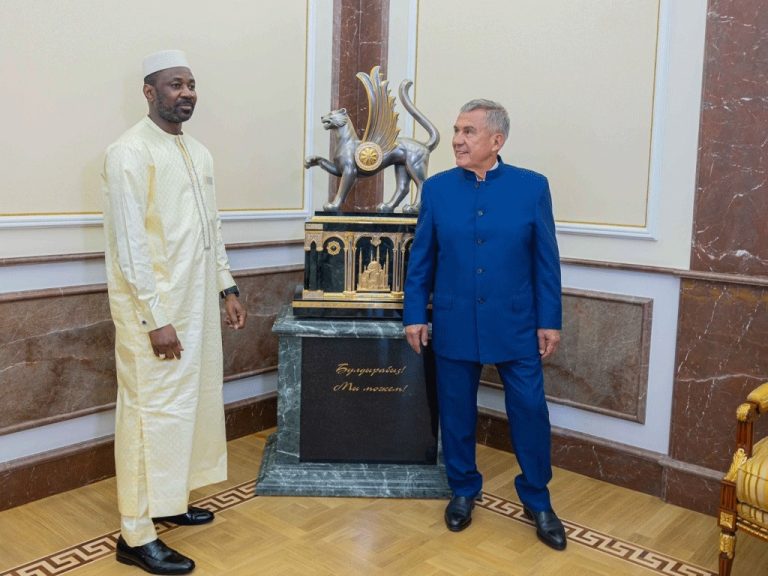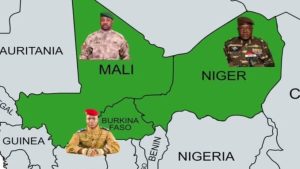Mali’s strategic pivot: President Goïta deepens ties with Tatarstan in bold diplomatic move

In a significant step for Mali’s foreign policy, transitional President Assimi Goïta has concluded a pivotal visit to Russia’s Republic of Tatarstan, marking another milestone in his administration’s push for diversified international partnerships.
The Malian leader’s reception by Tatarstan President Rustam Minnikhanov showcased the growing importance both nations place on strengthening bilateral relations beyond traditional frameworks.
The discussions between the two leaders revealed multiple dimensions to this evolving partnership.
At their core remains the longstanding security cooperation between Mali and Russia, a relationship spanning over six decades that has gained renewed importance in recent years.
However, the dialogue notably expanded into vital economic sectors including agricultural development, energy infrastructure, and industrial processing capabilities – areas critical for Mali’s economic sovereignty.
Tatarstan’s position as a center of technological innovation and Islamic finance opened doors for specialized collaboration.
President Minnikhanov expressed particular interest in establishing partnerships in advanced manufacturing and Sharia-compliant financial systems, while extending an invitation for greater Malian participation in Kazan’s Islamic Economic Forum.
These overtures align with Mali’s strategic objectives of developing domestic industries while maintaining cultural and religious alignment in its economic partnerships.
The visit underscores the broader diplomatic strategy of President Assimi Goïta of building multidimensional alliances that support Mali’s security needs while laying foundations for long-term economic development. By engaging with Tatarstan’s specialized economic sectors, Mali gains access to Russian expertise beyond military cooperation, creating a more balanced and sustainable partnership model.
This diplomatic engagement occurs against the backdrop of Mali’s continued realignment within the African geopolitical landscape.
As the nation deepens ties with Eurasian partners through initiatives like this Tatarstan visit, it continues to redefine its international relationships in pursuit of greater autonomy and development capacity.
The agreements emerging from these talks may well set precedents for how Sahel nations engage with global partners in the coming years.
Neil CAMARA






